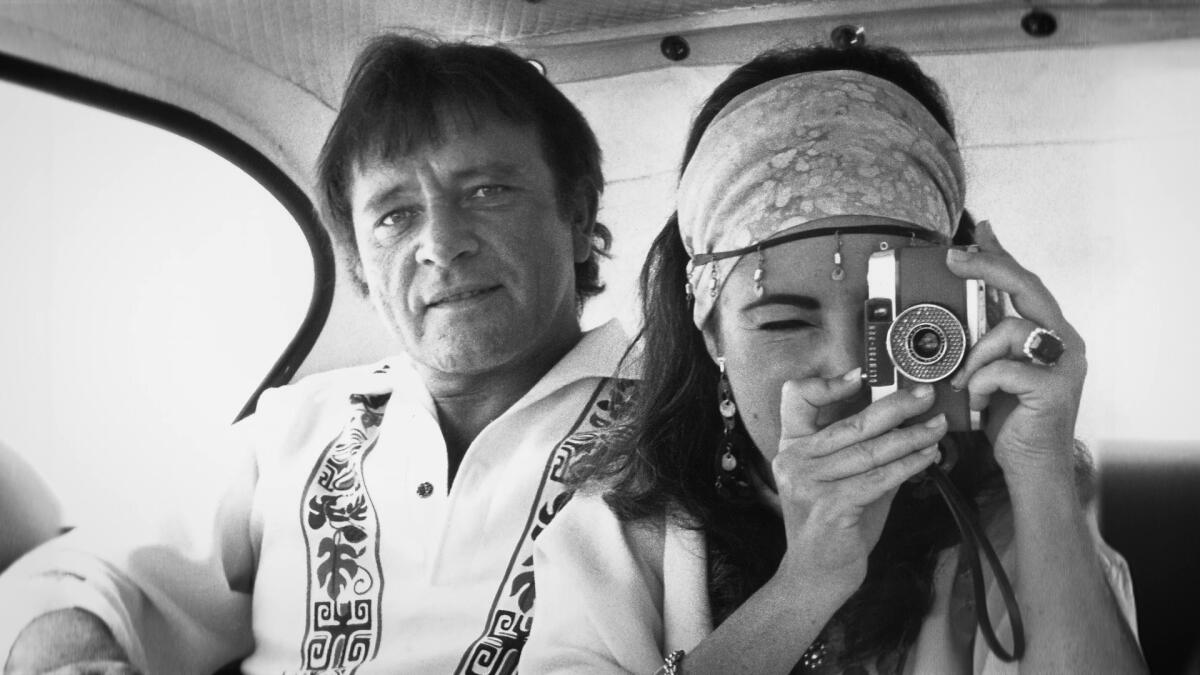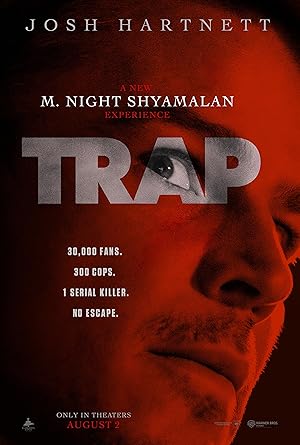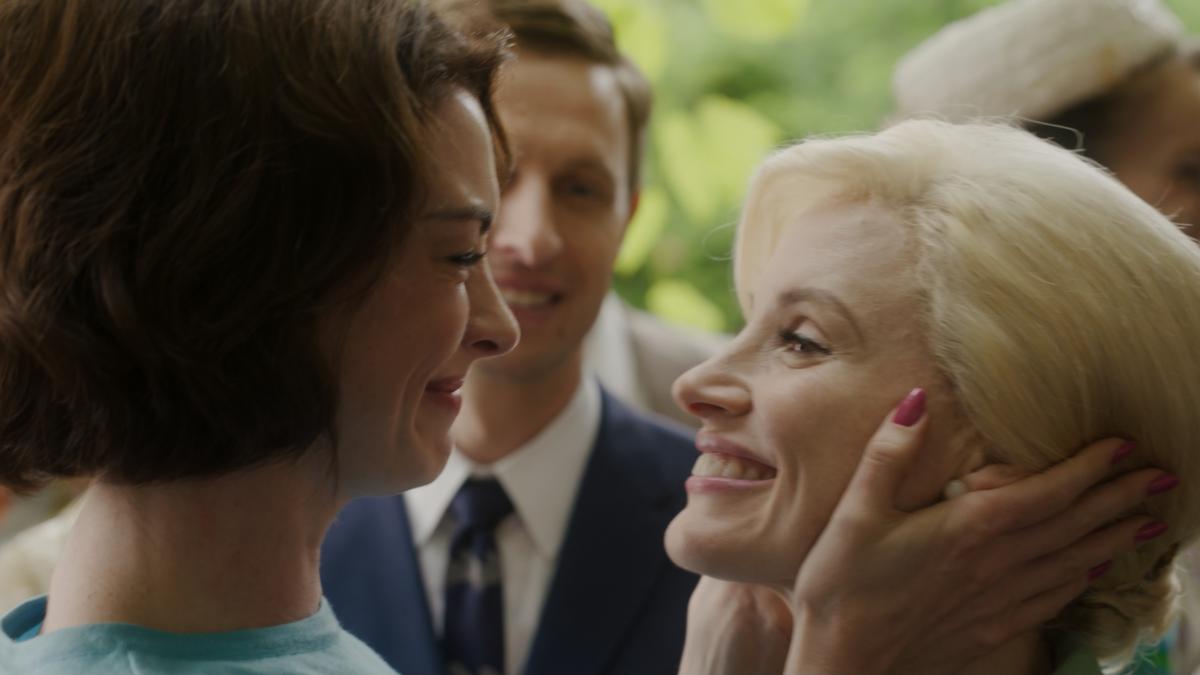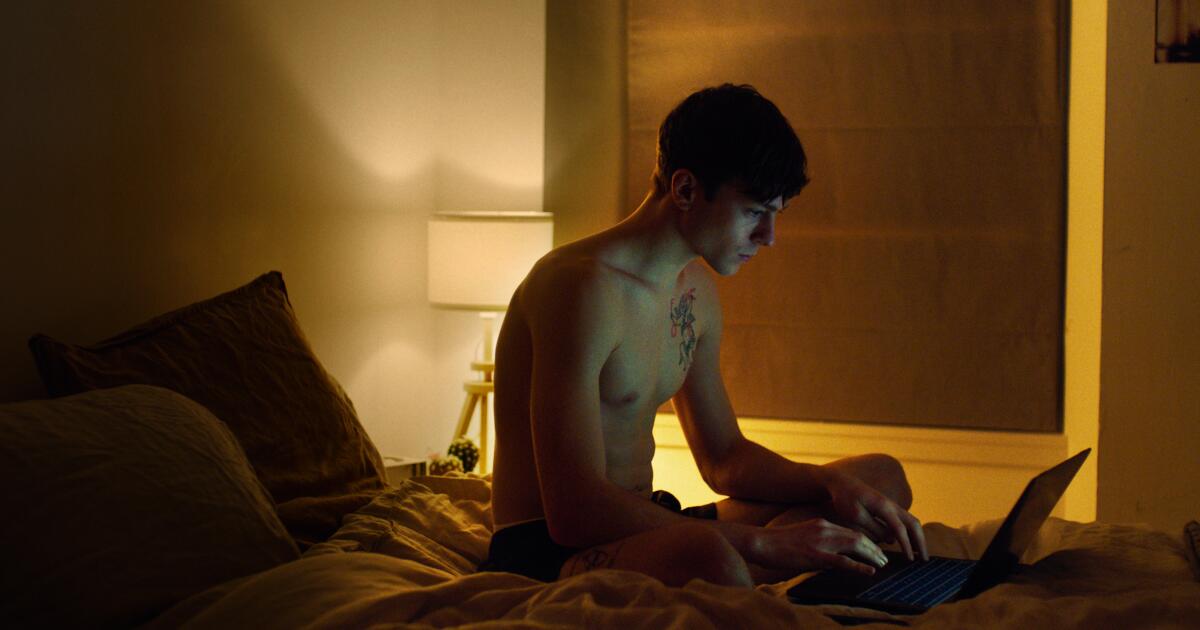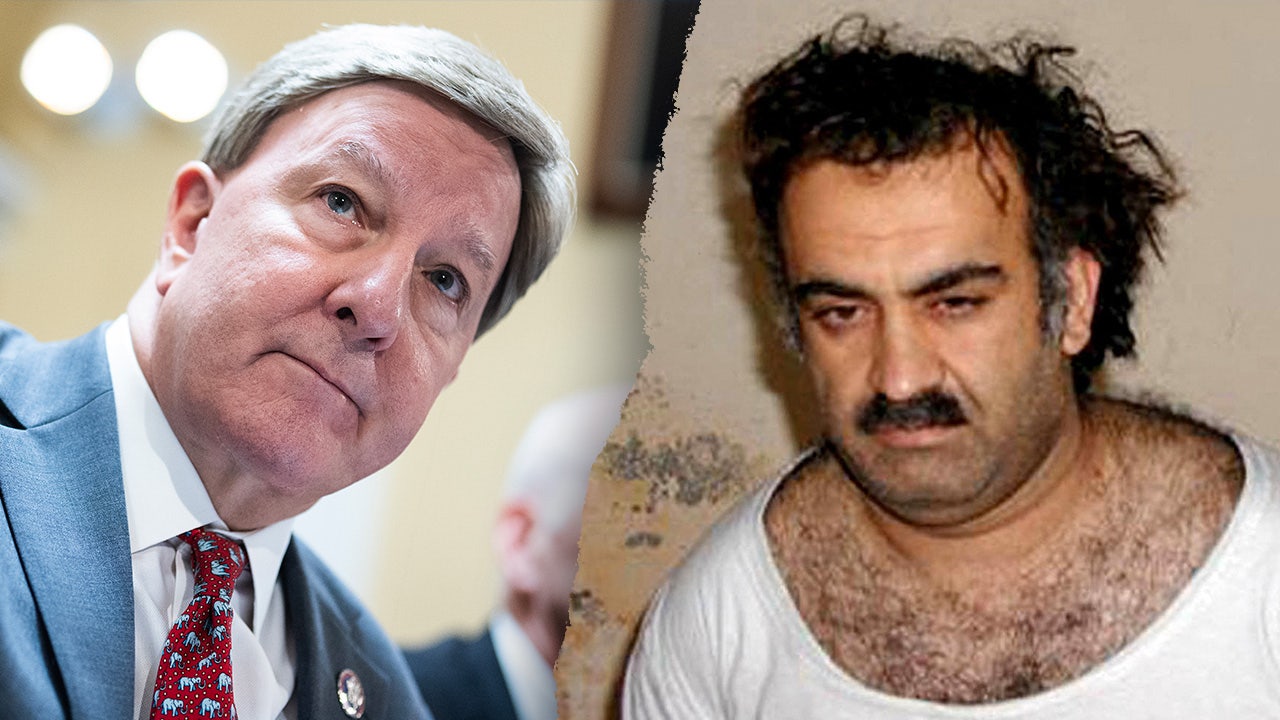It is 1960 in America and an impossibly young John F. Kennedy is campaigning for president. Alice (Jessica Chastain) and Celine (Anne Hathaway) are neighbours and best friends. Their husbands, Simon (Anders Danielsen Lie) and Damian (Josh Charles), are doing well at work and their young sons, Theo (Eamon O’Connell) and Max (Baylen D. Bielitz), are friends too, in and out of each other’s houses.

The film opens with Alice throwing a surprise party for Celine. There are discussions of how Kennedy is too young to be running for president and during cocktails, when Simon makes a joke of the Kennedys expecting on the campaign trail, there is awkwardness as Celine and Damian have had difficulties conceiving.
We learn that Alice was a star reporter at the local newspaper and though Simon does not wish it, Alice is chaffing to go back to work. Like all Stepford scenarios, all is not well in this suburban Eden. Alice is shown to be anxious about Theo, who she hovers over constantly. Celine is the more fun mum entering into the spirit of the boys’ games. Theo’s Granny Jean (Caroline Lagerfelt) with her magic tricks is a great favourite of the boys.
Mothers’ Instinct (Hindi)
Director: Benoît Delhomme
Cast: Jessica Chastain, Anne Hathaway, Josh Charles, Anders Danielsen Lie
Run-time: 94 minutes
Storyline: Neighbours who are best friends turn upon each other following a tragedy
A tragedy drives the friends apart as jealousy, grief and paranoia colour all interactions. There are unreliable narrators galore and skewed perspectives where anyone can be victim or perpetrator. Each tearful rapprochement could be taken at face value or could be the first step to further machinations.
Based on Barbara Abel’s 2012 novel and Olivier Masset-Depasse’s multiple award-winning Belgian-French film Duelles (2018), Mothers’ Instinct is beautiful looking. Masset-Depasse was to direct the English version but left the production making way for cinematographer Benoît Delhomme’s directorial debut, which explains the lovely-looking, golden-lit frames. Chastain and Hathaway look smashing in their ‘60s pencil skirts, blouses in pastel colours, bows and cigarette trousers, perfectly accessorised with high heels, purses and gloves.

As Alice and Celine, Chastain and Hathaway run the gamut of emotions from love, grief and guilt to rage, suspicion and fear. There is a reference to the habit of consigning the so-called ‘problem women’ to metaphoric attics. The actors’ fine work is not backed by the script that skitters this way and that like a frightened mouse in an overlarge sand pit.
The abrupt shifts in tone keeps the viewer off-kilter till it does not in the third act which quickly devolves into some kind of ‘80s Hindi movie melodrama — one almost expects the women to call each other chudail or dayaan while clawing each other’s eyes out and tearing out the immaculately coiffed hair. On second thoughts, that would have been rather enjoyable. You can spend time with Mothers’ Instinct wondering about the placement of the apostrophe and marvel at the fabulous clothes adorning these beautiful actors who are at the top of their game.
Mothers’ Instinct is currently running in theatres


